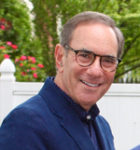
Chukat and Balak

SAN DIEGO– This Shabbat, 12 Tammuz, is also July 4th, “Independence Day” in the United States of America. It is also the birthday and liberation of the Frierdiker Rebbe, “the Previous Rebbe,” Yosef Yitzchak Schneersohn, the sixth Rebbe of the Chabad Lubavitch Chasidic movement and father-in-law of The Rebbe, Rabbi Menachem Mendel Schneerson. An odd Shabbat to learn about a talking donkey, wouldn’t you agree? Perhaps not.
We learn in this week’s Torah readings that judging others favorably is essential. Rabbi Nachman of Breslov composed a short prayer for assistance in finding the good in others (Likkutei Tefillot 117): “God Above, help me give each person the benefit of the doubt, even those who disagree with me… And may this lead to true peace and unity among all of Israel!”
Bilam saw the world through ayin ra’a, (wicked eye). The concept of the “lens” through which we see the world is essential to grasp the good that surrounds us. It is the basis of living well. Isn’t this what Independence Day in America, rests on? One nation, under God, indivisible, with liberty and justice for all? And isn’t this perspective, this vision, an essential element in the positivity teachings found throughout our faith?
In fact, we learn in Choshen Mishpat 137, “Behold, the first ‘good’ in the Torah was based on sight. And from this Rabbi Eliezer learned that the general way to achieve goodness is ‘ayin tova.’” Indeed, in Bereshit, we see that the first verse in the Torah using the word “good” is in relation to sight: “And G-d saw the light and it was good…” Avraham Avinu, the Mishnah Avot 5:22, teaches, had three traits to be emulated: a good eye (ayin), a meek spirit (ruach) and a humble soul (nefesh). In contrast, Bilam the wicked had an evil eye, a high spirit and a haughty soul.
We learn in Proverbs 16:1, “A person may arrange his thoughts. But what he says depends on the Lord.” It is clear that our words have remarkable power to heal, to offend, to build, to destroy, to create distance or to bring closer. Putting a cracker with an OU on it in your mouth doesn’t seem to protect what comes out of many mouths. Hashem put the power of miracles in our mouths. When our hearts and our mouths are aligned, when we grasp the dominion of our words that are dependent on and originate from Hashem, we see our words are like seeds, and we are in a strong position to plant those seeds to be a source of blessing and justice for all.
Hashem opened the eyes of Bilam, and planted words in his mouth. When Bilam looked at the people he was sent to curse, he saw and spoke differently. “Bilam raised his eyes and saw Israel dwelling according to its tribes, and the spirit of God rested upon him.” He saw a society as it could be, one we all desire, filled with trust and dignity. He said, “Mah tovu ohalecha, Yaakov mishk’notecha, Yisrael,” “How goodly are your tents, O Jacob, your dwelling places, O Israel.” He goes on to see and speak out about streams, like gardens by the river, water flowing from wells, such beauty. All from what Hashem planted in his eyes, his heart and in his mouth. This is much different than where the parasha began, seeing the world quite differently, in a far more divided way.
On this auspicious July 4th Shabbat, we are asked to see what can be, to bring kindness to all, to grow past divisiveness and speak more lovingly with each other. We are asked to protect our vision, to recognize that our choice of words give life to our faith and to build our lives in ways that genuinely, fully and authentically reflect just how truly goodly are our tents, our dwelling places.
*
Michael Mantell, Ph.D., prepares a weekly d’var Torah for Young Israel of San Diego, where he and his family worship. He may be contacted via michael.mantell@sdjewishworld.com